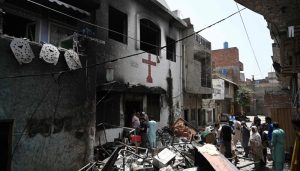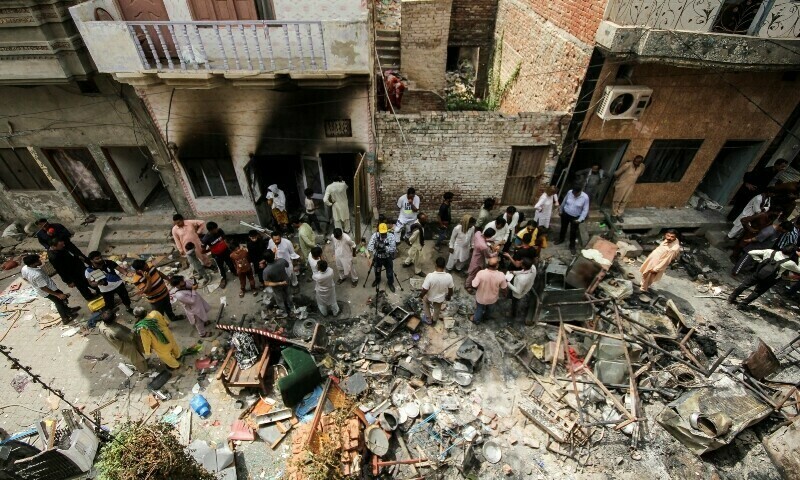World International Day for Tourism is celebrated annually on September 27th, to promote responsible and sustainable tourism and raise awareness about tourism’s significance in socio-economic development, cultural exchange, and global peace.[1] The day marks the anniversary of adopting the Statutes of the United Nations World Tourism Organization (UNWTO) in 1970, which led to the establishment of UNWTO five years later.[2] Every year it is celebrated with a unique theme that addresses current issues and opportunities in the tourism sector. The theme for World Tourism Day 2024 “Tourism and Peace“[3] highlights how tourism can foster peace, understanding, and reconciliation by bringing people from diverse cultures together, breaking down stereotypes, and promoting tolerance and intercultural dialogue.[4]
The theme for World Tourism Day 2024 is “Tourism and Peace”
The UN Tourism (UNWTO is now known as UN Tourism)[5], World Tourism Barometer reports that international tourism reached 97% of pre-pandemic levels in early 2024, with 285 million tourists traveling. The Middle East, Africa, and Europe saw notable recoveries, while Asia and the Pacific reached 82% of pre-pandemic figures. However, challenges remain due to ongoing conflicts and economic uncertainties.[6]
In the contemporary context of the global tourism industry, the Russia-Ukraine conflict has emerged as a significant risk to the recovery of international tourism, especially following the COVID-19 pandemic.[7] This conflict has disrupted global tourism by causing flight cancellations, increased fuel costs, and altered travel behavior due to safety concerns and economic instability. The closure of Russian airspace, sanctions, and blocked transactions have notably impacted countries like Spain and Cuba, which depend on Russian tourists.[8] Concurrently, UNESCO’s assessment reveals severe damage to Ukraine’s cultural and tourism assets, estimated at $3.48 billion, with the sector facing $19.6 billion in revenue losses. The need for nearly $9 billion in recovery funding underscores the extensive toll of the conflict, further straining the global tourism industry’s recovery efforts.[9]
Similarly, the ongoing Israel-Palestine conflict continues to disrupt tourism, with significant declines in visitor numbers to Israel. Tourist entries dropped sharply from 375,600 in March 2023 to 79,500 in March 2024.[10] The conflict has led to the suspension of many flights and cruise ships avoiding Israeli ports.[11] Nearby countries like Egypt are also affected, facing potential declines in tourism revenue by 10-30% due to regional instability.[12]
Similarly, Pakistan has experienced incidents that have impacted both tourism and peace:
A surge in Attacks on Minorities (2023):
In 2023, Pakistan experienced a significant rise in violence targeting minority communities,[13] with at least 193 reported attacks on persons, properties, and places of worship, according to a report by the Centre for Social Justice (CSJ). The provinces of Punjab and Sindh were particularly affected, witnessing 42 incidents at places of worship of minorities. Ahmadi places of worship bore the brunt, with 29 attacks reported in Punjab, 10 in Sindh, and three in Azad Jammu Kashmir (AJK).[14]
This increase in violence, particularly in Punjab and Sindh, has impacted the safety and perception of Pakistan as a tourism destination, highlighting the challenges in fostering peace and stability.
Vigilante Violence in Sargodha (2024):
On May 25, 2024, a large mob gathered in Mujahid Colony, Sargodha, and attacked the home of Nazir (Lazar) Masih and his son, Sultan Masih, following allegations that they had deliberately burned pages of the Holy Quran.[15] An announcement inciting this violence was reportedly made from a local mosque, prompting around 2,000 people to converge outside the Masih family’s home, demanding their execution. Videos of the mob’s demands quickly went viral on social media.
While the police managed to evacuate nine family members, Nazir Masih was captured by the mob and severely beaten. He was hospitalized in critical condition and succumbed to his injuries a week later, on the night of June 2-3, 2024.[16] This attack occurred nearly a year after the Jaranwala incidents, where thousands had targeted Christian homes and burned 24 churches based on similar false accusations of blasphemy.[17]
The violent attack on a Christian man in Sargodha underscores the broader issue of sectarian violence in Pakistan. Such incidents, including the attack in Jaranwala[18] and subsequent events, emphasize the challenges in ensuring safety and peace, which are crucial for the growth and sustainability of the tourism sector.
The 237th Council of Islamic Ideology (CII) meeting, chaired by Dr. Muhammad Raghib Hussain Naeemi, condemned the blasphemy of the Holy Quran and the violent attacks on Christian families in Sargodha on May 25, 2024. The council called for severe punishment for the perpetrators and reiterated its recommendation to establish special courts for swift justice in such cases. It emphasized the need to prevent vigilante actions, aligning with the teachings of the Holy Quran, the Constitution, and “Paigham-e-Pakistan.”[19]
Mob Violence in Swat (2024):
A 36-year-old tourist from Sialkot, Punjab, was killed and his body burned in Madyan, Swat, after being accused of desecrating the Quran.[20] The incident occurred on the 20th of June evening, with a mob of hundreds attacking the police station where the man was held, dragging him out, and torturing him to death. The mob also set fire to the police station and a police vehicle. The incident disrupted local tourism, although businesses resumed normal operations the following day.[21] The killing of a tourist in Madyan, Swat, by a violent mob, reflects the severe implications of local unrest on tourism.
In response, law enforcement agencies swiftly acted, arresting dozens of suspects involved in the lynching and initiating an investigation led by a Joint Investigation Team (JIT). Authorities emphasized the importance of upholding the rule of law and preventing vigilante justice from undermining state authority and social harmony.[22]
Religious scholars, human rights organizations, and legal experts voiced their condemnation, emphasizing that no individual or group has the right to take the law into their own hands. Similarly, the Human Rights Commission of Pakistan (HRCP) criticized the state’s failure to prevent such acts, noting the dangerous implications of mob violence driven by extremist ideologies. The HRCP called for immediate government action to prevent further incidents and ensure the rule of law.[23]
Tourism has the potential to be a powerful force for peace, fostering cultural exchange, understanding, and socio-economic development. However, global conflicts like the Russia-Ukraine war and the Israel-Palestine tensions have significantly disrupted tourism, damaging cultural assets and creating economic instability. These conflicts highlight the broader need for peace to ensure the sustainability of the global tourism industry, as safety and stability are essential for attracting visitors and promoting intercultural dialogue.
These conflicts highlight the broader need for peace to ensure the sustainability of the global tourism industry, as safety and stability are essential for attracting visitors and promoting intercultural dialogue.
Locally, the recent upsurge in mob justice episodes and sectarian violence in Pakistan, including those in Sargodha and Swat, highlights the difficulties in preserving societal cohesion and visitor safety. These tragedies damage the nation’s reputation while also impeding its ability to use tourism as a tool for development and peace. Governments, local communities, and international organizations must work together to protect the rule of law, fight extremism, and ensure justice to advance sustainable tourism. True catalysis of peace and mutual understanding by tourism can only be achieved via coordinated efforts to tackle both local and global issues.


